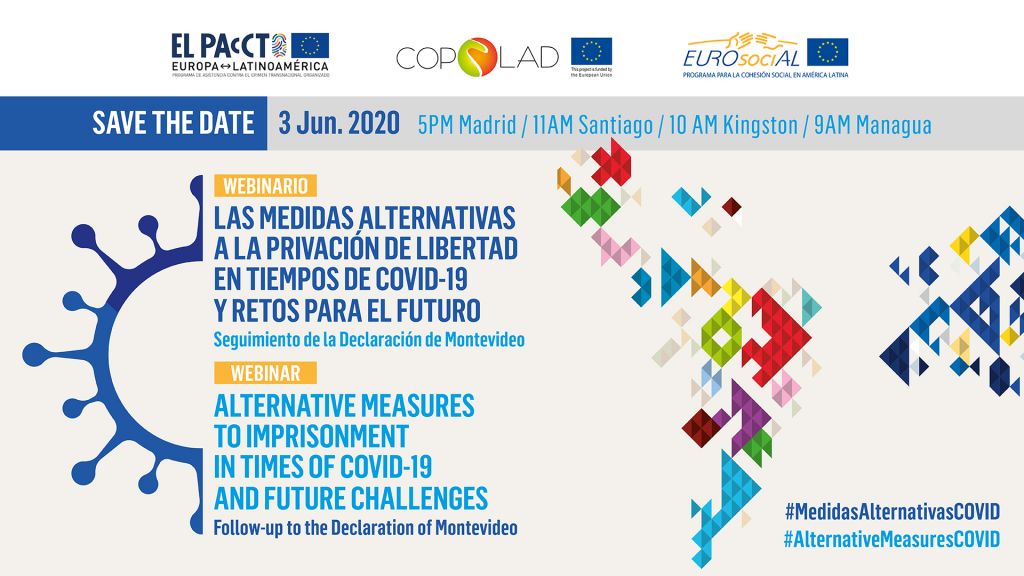The Head of Unit of the European Commission’s Directorate-General for International Cooperation and Development, Jorge de la Caballería, will open the virtual seminar together with representatives of the three regional programmes that are organising it.
The Webinar is divided into three blocks:
An overview of the current situation in the American Hemisphere, by Adam Namm, Executive Secretary of the Inter-American Drug Abuse Control Commission of the Organization of American States (CICAD/OAS)
A panel on Alternative Measures to Deprivation of Liberty in the Emergency by COVID-19. This panel will count with:
- Pietro Molino. Deputy Attorney General of the Italian Supreme Court
- Andres Mahnke. National Defender of Chile
- Soledad García Muñoz. Special Rapporteur on Economic, Social, Cultural and Environmental Rights of the Inter-American Commission on Human Rights (IACHR)
A panel on The paradigm shift in prisons in post-COVID times. With the intervention of:
- Olga Ballesteros. Director of the “Victoria Kent” Social Integration Centre in Madrid, Spain
- Laura Cardenas. Communication expert
- Enrique Gil Botero. Secretary General of the Conference of Ministers of Justice of the Ibero-American Countries (COMJIB)
The closing ceremony will be attended by Anna Terrón, Director of the International and Ibero-American Foundation for Administration and Public Policies (FIIAPP), Hervé Conan, Deputy Director General of Expertise France (EF), Antonella Cavallari, Secretary General of the Italo-Latin American International Organization (IILA) and the Head of Unit of the European Commission’s Directorate General for International Cooperation and Development, Jorge de la Caballería.
The situation of prisons in Latin America during the health emergency
The worrying situation of overcrowding and poor prison conditions in some Latin American and Caribbean prisons has been compounded by the expansion of COVID-19. The impossibility of social distancing and the precariousness of the health systems inside the prisons increase the possibilities of contagion among the population deprived of liberty.
Furthermore, the tension generated by this situation has been reflected in riots that have taken place in recent weeks in some prisons in several European and Latin American countries such as Colombia, Peru, Argentina, Venezuela, Brazil, France and Italy.
Organized criminal groups are taking advantage of this situation to organize riots and thus expand their power in prisons and obtain benefits for their leaders.
On the other hand, persons deprived of their liberty are one of the most vulnerable groups in society, especially in particular situations such as the current pandemic. Social distancing, applied in general to avoid contagion, is impossible in a prison institution, even more so when it is overcrowded.
This requires individualized attention to persons deprived of liberty from two perspectives: to provide follow-up with guarantees of effectiveness and human rights protection for persons deprived of liberty, and to prevent organized crime from taking advantage of these measures to increase its power.
EL PAcCTO, EUROsociAL+ and COPOLAD II advocate addressing the issue of alternative measures to the deprivation of liberty, which could prevent overcrowding and therefore avoid conflict situations, promote the effective fight against organized crime and guarantee human rights during and after the pandemic.






